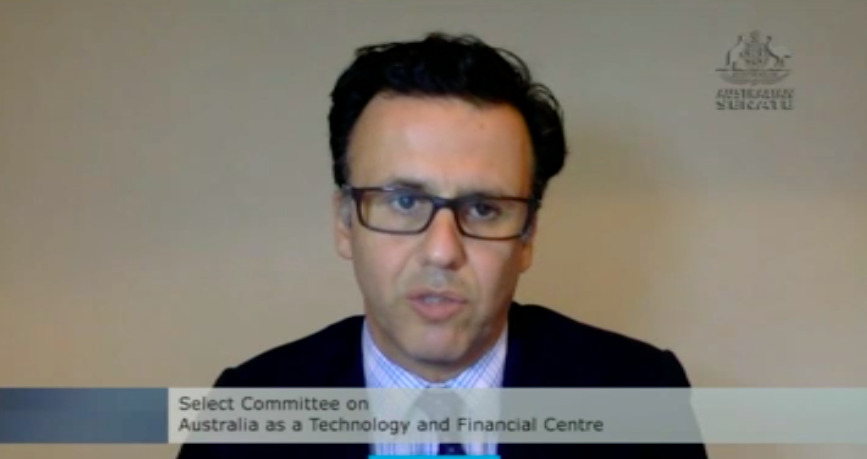Australian government should shift focus from ‘Wild West’ crypto narrative, says Blockchain Australia CEO

Tom Selleck in 1990's 'Quigley Down Under'. Photo: Getty Images
Steve Vallas, the CEO of Blockchain Australia, has called for more regulatory engagement for the Australian crypto industry, while resisting the overarching notion of crypto Down Under being the “Wild West”.
Vallas was speaking as one of several notable guests invited to an online discussion on Friday, hosted by Senator Andrew Bragg, Chair of the Select Committee on Australia as a Technology and Financial Centre.
The Blockchain Australia CEO said that while he believes Australia’s crypto and blockchain landscape is generally “well placed”, it has fallen behind where it could be, partly due to a lack of regulatory clarity and engagement.
This largely echoes the current sentiment in the US at the moment, given what’s been happening in the US Senate related to crypto-tax-reporting wrangling over the past week.
“Fundamentally, the challenge for us has been that we lack guidance,” said Vallas. “We have not been provided adequate guidance with respect to regulatory frameworks as they currently exist.”

The industry body leader highlighted the growth and innovation of the Australian crypto scene, which has helped it mature since the ICO (Initial Coin Offering) days. And he called for a “graduated, fit-for-purpose regulatory framework” to be developed – he wants to see regulators from across the country come together and nut it all out.
Vallas also reiterated Blockchain Australia’s recently stated request for a “safe harbour” provision to be enacted to create short-term certainty for crypto and blockchain businesses while fair and appropriate regulations are formulated.
Also speaking to the committee was Chloe White, the managing director of Genesis Block, which is an advisory group specialising in digital asset policy. White said that part of the problem was that, in Australia at least, regulators tend to only pay attention to the industry during the more hyped-up stages of crypto.
“During the quiet times, a lot of that capability and expertise is allowed to dissipate,” she said.
“This is now the third time that we’re starting, again, to try to understand what actually this technology does, whereas in other jurisdictions, they’ve recruited for specialists into the public service, or they’ve set up multi-agency task forces that have continued to consult industry and develop policy through those quiet periods.
“We’ve been been in a very reactive position where policy advice and analysis has been concerned,” White added.

Shooting down the ‘Wild West’
In his opening remarks to the committee, Vallas mentioned that the “Wild West” narrative pertaining to the crypto industry continues to be pervasive. He was talking about it how it’s viewed through an Australian governmental and regulatory lens, although it’s probably fair to suggest that other governments and regulators globally have a similar perception.
“We resist that narrative on the basis that we can happily say that the industry is seeking out clarity,” said Vallas. “We are very deliberately asking for the regulators to engage with us, publicly and privately.”
Deputy Chair, Senator Marielle Smith, sought more clarification from the Blockchain Australia CEO on the Wild West perception and where it specifically comes from.
Vallas replied that it stems from legacies related to the crypto ecosystem, particularly from the ICO period in crypto in 2017/2018.
This was a period that saw plenty of crypto startups come and go attempting to capitalise on hype and hope, sometimes with very little foundational substance.
“The landscape as we see today is entirely different,” said Vallas. “We don’t see an appetite within Australia for ICOs, we don’t see the regulators allowing that to happen again, so we have a new chapter, but the narrative has persisted.
“It has been the case when people don’t understand the space, the tendency is to lean in on the ‘Wild West’, to lean in on nefarious and bad actors.
“All I can point to are the facts that have emerged. Businesses that do things like track transactions on chain are telling us that fraud, nefarious actors and bad behaviour is a very, very small percentage of transactions. But it is a persistent conversation and I expect it will continue.”

Michael Bacina, a digital legal specialist and partner with Piper Alderman added to the Wild West-themed part of the conversation.
“There is this prevailing news that the bad story in the Wild West will slowly go away,” he said. “Mr Vallas didn’t mention it, but in the early days of Bitcoin it was being used in connection with the Silk Road. From recent research, that’s starting to go away. Chainalysis is one company that the committee could look to around the statistics of what is happening in terms of bad actions in the industry.”
You can read the full transcript of the committee discussion here.
Related Topics
UNLOCK INSIGHTS
Discover the untold stories of emerging ASX stocks.
Daily news and expert analysis, it's free to subscribe.
By proceeding, you confirm you understand that we handle personal information in accordance with our Privacy Policy.








